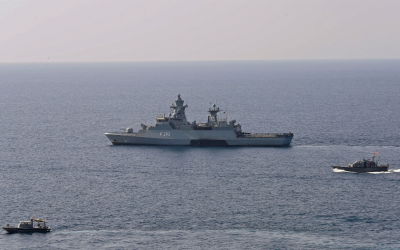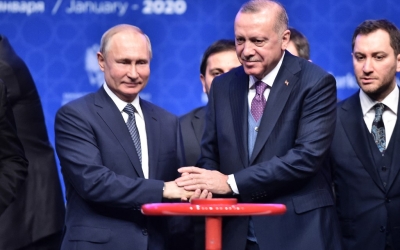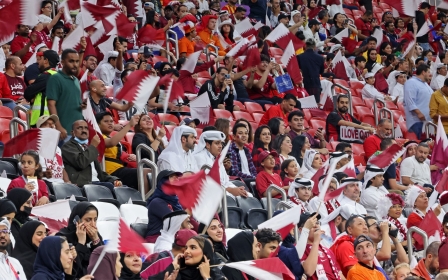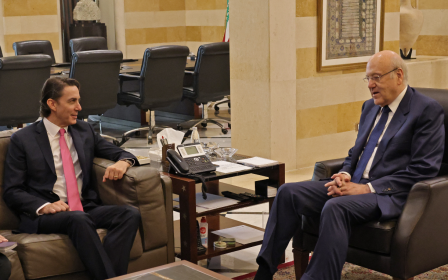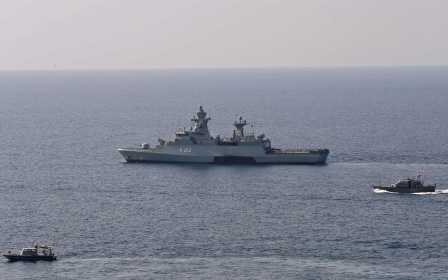Syria's blessing required for Lebanon to uncover its gas riches
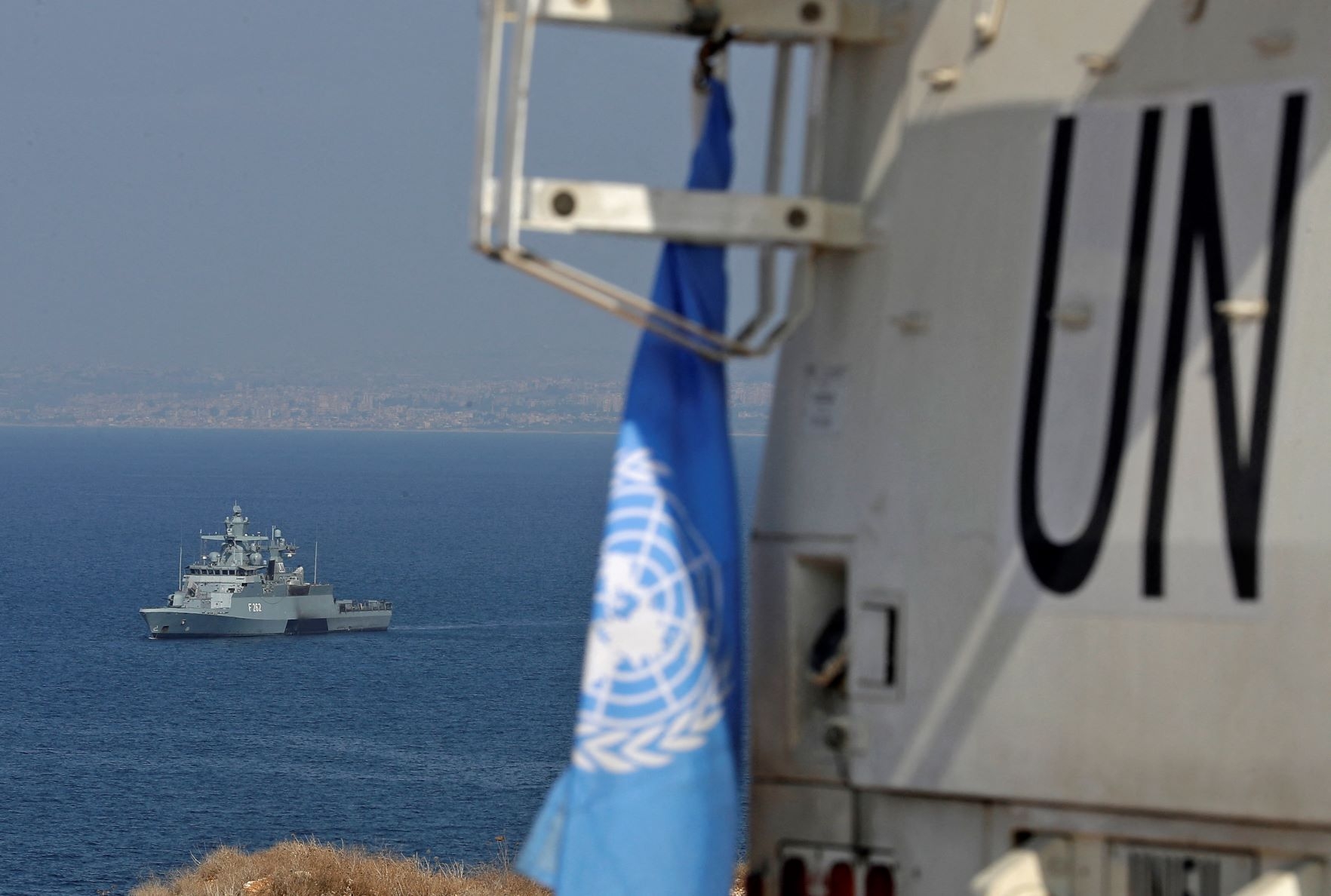
Before Lebanon can reap any major benefits from its supposedly lucrative offshore gas and oil reserves, the energy-starved country will have to resolve its maritime border dispute with Syria.
The two countries' maritime zones overlap by about 750 sq km, including a region where Syria has awarded contracts to two Russian companies to begin oil and gas exploration in the territory Lebanon also claims.
Lebanon in October resolved its maritime dispute with Israel under a US-brokered deal, which paved the way for French oil giant TotalEnergies and Italy's ENI to begin natural gas exploration in the Qana field in the country's southern waters.
However, until Lebanon's maritime borders with Cyprus and Syria are clearly demarcated, companies will remain reluctant to invest in gas and oil exploration in the rest of Lebanon's maritime zone, leaving the majority of the country's potential reserves still inaccessible.
Cyprus, after the US-mediated agreement cleared its worry of upsetting Israel, is now ready to demarcate its borders with Lebanon. But the maritime zones of Lebanon, Syria and Cyprus are linked by one point, requiring Syria's say in the matter.
"We will not delineate with Cyprus until we communicate with Syria," Lebanon's deputy speaker of parliament and border negotiator Elias Bou Saab said after the signing of the Lebanon-Israel border agreement.
For Lebanon, which imports 97 per cent of its energy supplies, delineating its borders with Syria has "tremendous value", Sami Nader, director of the Beirut-based Levant Institute for Strategic Affairs, told Middle East Eye.
The recoverable offshore reserves are estimated to hold 25.4 trillion cubic feet (tfc) of natural gas, part of the lucrative Levant Basin with an estimated 122 tfc of recoverable gas and 1.7 billion barrels of recoverable oil.
The bidding round for exploration in the remaining eight blocks in Lebanon's offshore exclusive economic zone was to close on 15 December, Laury Haytayan, the MENA director at the New York-based National Resource Governance Institute, told MEE.
Haytayan noted, however, that companies are unlikely to invest with the maritime borders still unclear.
Nader said: "International companies want an official demarcation between the governments. Without a kind of demarcation, no company will come."
'The time was not right'
A mere two days before Lebanese officials were scheduled to visit Syria at the end of October to discuss the maritime border, Damascus cancelled the visit in a letter sent to the Lebanese foreign ministry saying "the time was not right".
"Syria will take its time to reach a deal that would be more in its favour," Joseph Daher, an academic specialising in Syria and Lebanon, told MEE.
The Lebanese parliament's latest voting session, on 15 December, to choose the next presidential candidate again failed to reach consensus on a potential successor to former president Michel Aoun.
'Our [Syria-Lebanon] history is a history of opening and closing the border. The maritime deal is the same'
- Sami Nader, Levant Institute for Strategic Affairs
Sleiman Frangieh, the leader of the Marada movement, a Hezbollah-allied Christian political party, and a personal friend of the Assad family, is Syria's "natural candidate" for presidency, Haytayan said.
Last month the caretaker prime minister, Najib Mikati, endorsed Frangieh's candidacy for president. However, his name did not emerge in the ballot during the previous vote on 8 December.
The leader of Lebanon's Free Patriotic Movement Party Gebran Bassil, the son-in-law of former president Aoun, is also a potential candidate for presidency but one far less supported by Syria than Frangieh.
"Syria did not want to give the slightest indication that they might be willing to talk to Gebran Bassil on anything, especially on the maritime border," hence the reason for publicly cancelling the Lebanese delegation's visit, said Haytayan.
She added that a demarcation of the Lebanese-Syrian borders will ultimately depend on "what the political structure will be in Lebanon, to understand what kind of dialogue we will move into".
Syria's 'tool of pressure'
Syria may try to use a border demarcation deal as "leverage to pressure the Lebanese government in order to put its nose into Lebanese politics", said Nader.
Syria has long been involved in Lebanon's political and economic affairs, occupying Lebanon from the onset of the civil war in 1976 until 2005.
"Syria has immense leverage on the Lebanese government," Nader said.
He noted that during Syria's 29-year occupation, it frequently used border control as a "tool of pressure", often blocking trade from transiting from Lebanon to Gulf countries and Iraq.
"Our [Syria-Lebanon] history is a history of opening and closing the border," he said. "The maritime deal is the same."
Syria would not want a border demarcation agreement with Lebanon to be a "stand-alone deal", said Haytayan, while Daher commented that the Syrian regime might use a maritime border deal to ask Lebanon for "complete recognition" (of borders) or to solidify security cooperation with its neighbour.
Syria and Lebanon have still not reached an agreement on their shared land borders, indicating the likely slow progress on a demarcation of their maritime borders.
The territorial designation of an area known as Sheba'a Farms, at the intersection of the Syrian-Lebanon border and the Golan Heights, has been unclear since the French Mandate, with Lebanon still unable to get recognition from Syria that the land is Lebanese territory.
"The question of borders is very fluid when it comes to Lebanon and Syria, and it has always gone to the advantage of the Syrians," said Nader.
Russian blessing required
While Syria and Lebanon are not officially at war, their relationship is tense, opening the question of who would mediate a border demarcation deal, said Nader.
With Russia under sanctions following the invasion of Ukraine, and Syria under the US-imposed Caesar sanctions, which penalise any foreign entity dealing with the government, many nations may be hesitant to negotiate a deal that benefits Moscow or Damascus.
"There will be no one to facilitate this deal," Nader said.
Syria has signed agreements with two Russian companies, Kapital Oil Grupp and the SoyuzNefteGaz-affiliate East Med Amrit, to explore for oil and gas in its territorial waters - which overlap with Lebanon's, according to Karam Shaar, a Syrian political economist.
The original offshore exploration agreement was signed in 2013, part of a 25-year contract for Russia to explore Syria's offshore territories in exchange for Moscow's military intervention in support of the government.
The owner of Russia's Kapital is Yevgeny Prigozhin, a close confidant of Russian President Vladimir Putin and the head of Wagner Group, a Russian paramilitary organisation, Shaar told MEE, quoting a Foreign Policy report.
But Shaar noted that no "meaningful" exploration has been done in Syria's offshore waters, Russia merely "putting its hand on the block" to explore when the sanctions are lifted.
Daher noted that Qatar could be a possible mediator in a Lebanon-Syria maritime deal, considering its likely stake in the Qana natural gas field, demarcated in the recent Israel-Lebanon deal.
But the involvement of Russia in Syria's waters ultimately means the Kremlin's blessing is required to move forward, although the present political climate leaves a blessing unlikely, said Nader.
"Russia will not favour a deal that will pave the way for an alternative to Russian gas to Europe," he said.
Middle East Eye propose une couverture et une analyse indépendantes et incomparables du Moyen-Orient, de l’Afrique du Nord et d’autres régions du monde. Pour en savoir plus sur la reprise de ce contenu et les frais qui s’appliquent, veuillez remplir ce formulaire [en anglais]. Pour en savoir plus sur MEE, cliquez ici [en anglais].


